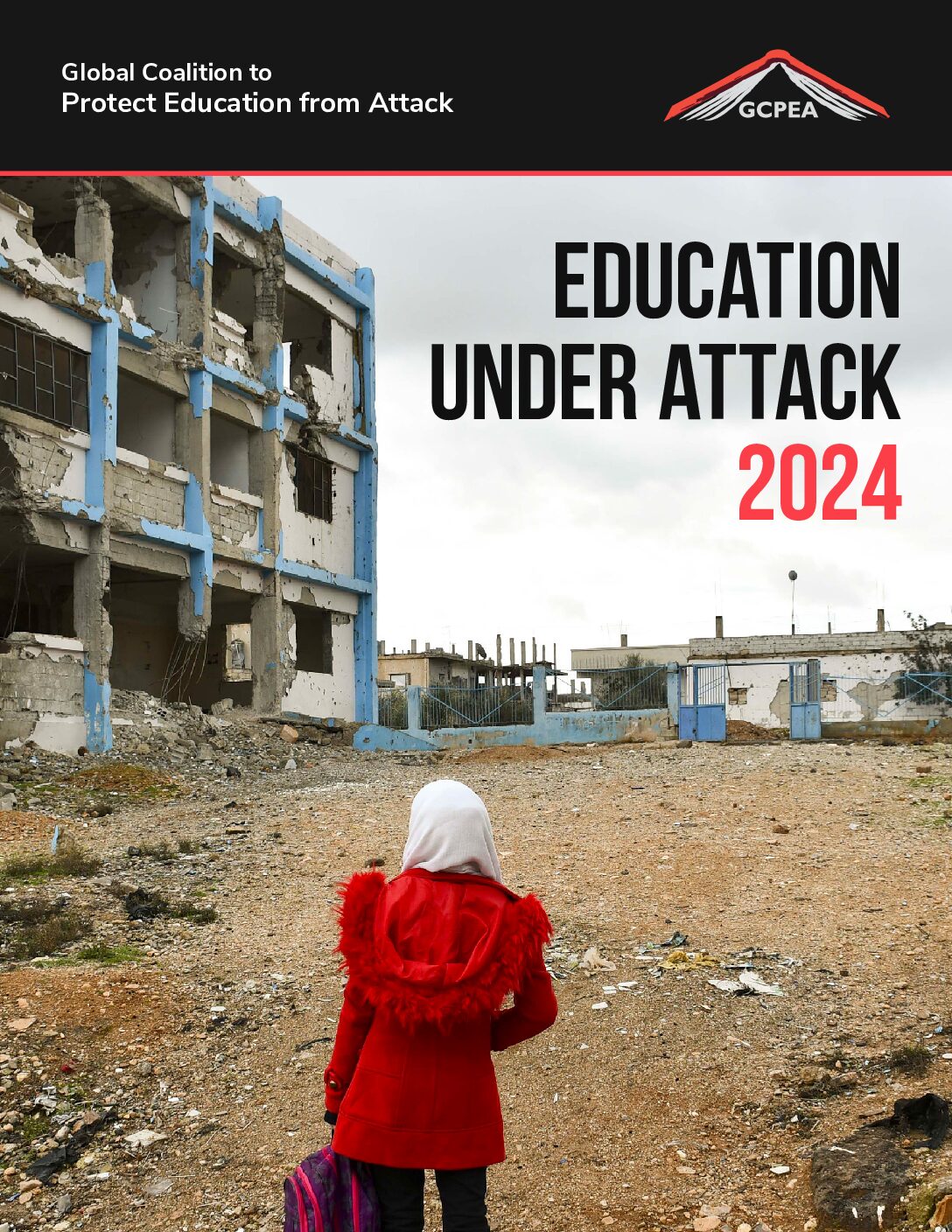GCPEA News
Crackdown on Students, Opposition as Government Blames Them for Kinshasa Attacks
Human Rights Watch, August 1, 2017
By Ida Sawyer, Director, Central Africa
Last Friday, 15 alleged perpetrators of a slew of recent attacks in Kinshasa – including the assault on the city’s central prison in May, which allowed some 4,000 prisoners to escape – were paraded before the media at police headquarters. The ceremony was attended by numerous, high-ranking officials in the Democratic Republic of Congo – including the director of the national intelligence agency (ANR), the national police commissioner, the prosecutor general, the governor of the city of Kinshasa, the vice prime minister and interior minister, the justice minister, and the government spokesperson.
Many of the alleged perpetrators are members of the Union for Democracy and Social Progress (UDPS) opposition political party of the late Etienne Tshisekedi. Human Rights Watch has documented numerous cases over the past two months of UDPS members who were victims of illegal arrests or enforced disappearances. At least four of the individuals presented to the press in Friday’s ceremony were among the cases we documented; until that day, their families did not even know where their loves ones were being held or if they were even still alive.
Ben Tshimanga, a student at Kinshasa’s Institut Supérieur des Techniques Médicales (ISTM), was also in the group of 15. In the early evening on July 20, military intelligence officers wearing civilian clothes with masks covering their faces approached Tshimanga and a group of his friends while they were chatting outside a dormitory at the University of Kinshasa (UNIKIN), the students later told us. Tshimanga at first managed to escape, but the officers grabbed two of his friends, threw them into a black jeep, and drove away. Tshimanga was then arrested later in the evening and taken to an unknown location.
One of the friends, Freddy Likambelo, a student at UNIKIN, was taken to a military detention center at Camp Kokolo, he later told us. The other, Aimée Lowadji, a nurse and former ISTM student who lives with her aunt at the UNIKIN campus, was detained at the provincial police headquarters, she told us later. Tshimanga, Likambelo, and Lowadji are all members of the UDPS. Lowadji and Likambelo also hold positions with the Mouvement des Tshikedistes pour le Changement (MTC), an international network of UDPS supporters.
When other students learned of the arrests that evening, they started to protest but were quickly dispersed by security forces who arrived and fired live bullets in the air, according to several students who were present. The next morning, a larger crowd of students gathered in front of the university’s administrative building, demanding the release of their fellow students and chanting hostile slogans about President Joseph Kabila, who has held on to power beyond the end of his constitutionally mandated two-term limit. Some students threw rocks at the university’s administrative building, shattering its windows, and burned vehicles parked nearby, witnesses said.
Five police jeeps soon arrived at the scene, and police officers fired live bullets and teargas at the protesters. Some students responded by throwing rocks in the direction of the police officers. Several students who appeared to have been hit by bullets were quickly evacuated by the police, according to witnesses. Many other students were beaten by the police or arrested.
Likambelo was released soon after the protest on July 21, and Lowadji was freed on July 22. “Someone in a face mask interrogated me,” Likambelo later told us. “He asked if I knew the reason for my arrest, and I said no. Then he threatened me but let me go. He said they were only releasing me because I’m popular and my colleagues had demonstrated for my release, but he warned that they’d be watching me closely.”
Tshimanga had been held in detention at an unknown location, without access to his family or lawyer, until he reappeared Friday, his family said.
The accusations made by intelligence and police officials at Friday’s ceremony contradict earlier claims by Congo’s justice minister and the government spokesperson, who blamed the attack on Kinshasa’s prison on followers of the Bundu dia Kongo politico-religious sect.
The officials at Friday’s ceremony did not present any evidence or explanation indicating how or why Tshimanga and the others would have orchestrated these attacks. Many fear that the charges are baseless and were brought as part of an effort to silence the political opposition and their supporters. There are also concerns that these accusations might be intended to lay the groundwork for future judicial proceedings against UDPS party leaders and other members.
During Friday’s ceremony, the police also announced they were looking for other suspected assailants still at large and that a payment of US $2,000 would be made to anyone who turned in one of the suspects alive. They cited the names of some of those they were looking for, including the pro-democracy youth activist and former member of the UDPS youth league Rossy Mukendi. Mukendi had been arrested previously on May 17, 2017, with 13 other youth activists who were protesting the bad state of the roads in their neighborhood in Kinshasa. The 13 others were released two days later, while Mukendi was held at a military intelligence detention center, without charge and without access to his family or lawyer, until he was released on June 15.
Congolese authorities should either urgently release Tshimanga and other opposition and pro-democracy activists, or promptly charge them with a credible offense and ensure they are given a fair and credible trial, free of political interference.



